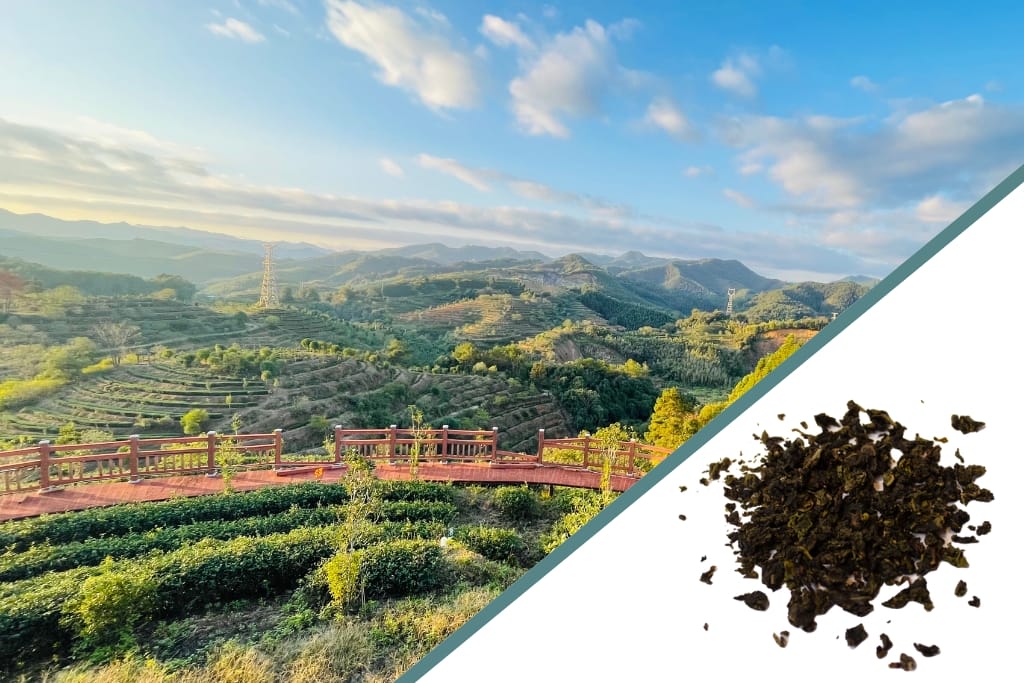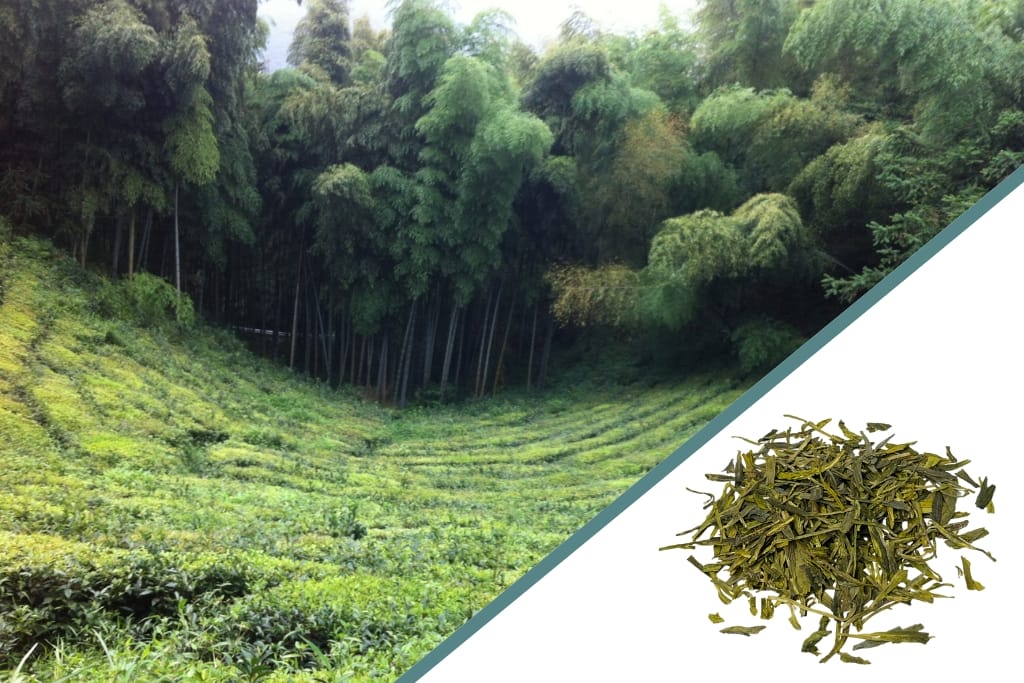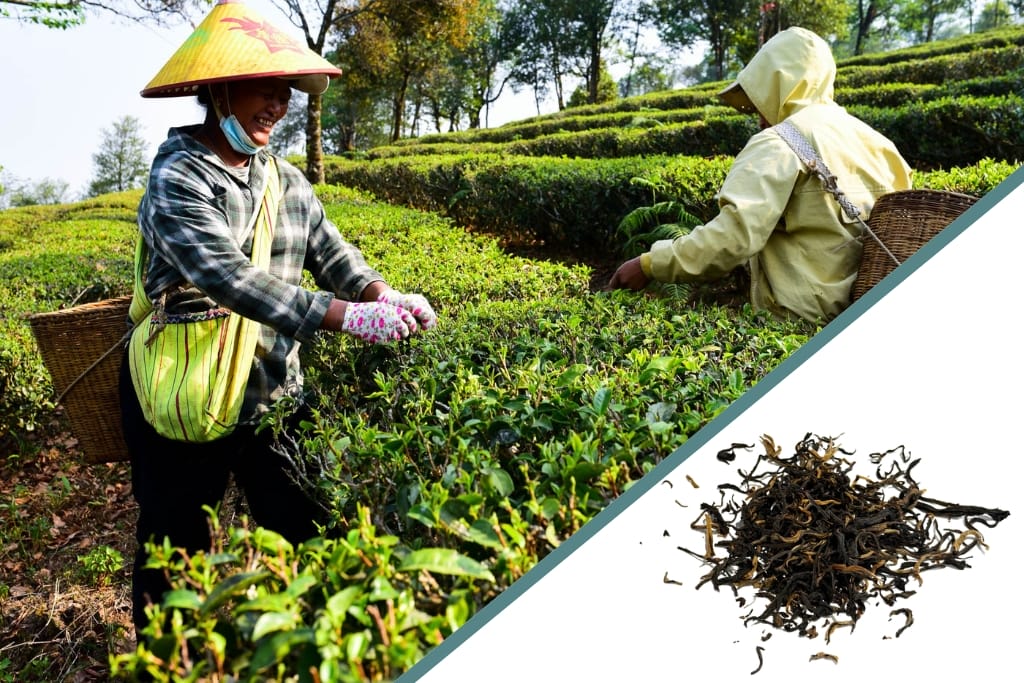Did you know that China is considered to be the birthplace of tea? In fact, it remains the largest producer of tea to this day! Caitlin Normann dives into the history of Chinese tea, a few of its tea-producing regions, and some of the most popular offerings from this beloved origin.

Historical evidence suggests that tea was first cultivated in China 6,000 years ago. However, this was when tea was considered to be a vegetable and eaten as such! Tea wasn’t even consumed as a beverage until 4,000 years later.
Brewing tea was a much different process from what it is today. Back then, the dried leaves were pressed into the shape of bricks. Then, when a person was ready to drink, they would have to grind the bricks into a powder known as muo cha. It wasn’t until the Ming Dynasty (1368–1644) that tea shifted from bricks to the loose leaf that we know today.
China’s provinces offer many different types of tea, some more famous than others. Terroir can greatly influence a tea’s flavor, and the terroir in China varies from region to region. We have many Chinese teas on our offerings list, and we’d like to highlight some of the regions that produce them!

Fujian Province is one of China’s most diverse growing region. The area produces some famously outstanding teas, such as Silver Needles, Tieguanyin, and Jasmine Pearls. With a subtropical climate and rich soil, tea thrives in Fujian! The region’s growing conditions can produce complex flavor notes, fluctuating between floral, fruit-like sweetness, and minerality.

When you think of Zhejiang Province, it’s Longjing tea, or Dragonwell, that immediately comes to mind. One of China’s most famous greens, this flat, pan-roasted tea is characterized by its vegetal and nutty taste. However, this coastal province is home to many other green teas as well! Pinhead Gunpowder—a staple for Moroccan Mint blends—and Anji Bai Cha are some of the most well-known ones.

Mao Feng and Keemun (Qimen) Black are two famous teas that hail from Anhui Province, as well as other noteworthy varieties, including Huo Shan Huang Ya, Taiping Houkui, and Liuan Guapian. Anhui is home to Huangshan, translating to the “Yellow Mountains”. This mountain range lives in the southern part of the province where much of the region’s tea is produced.

Within Guangdong Province lies Fenghuangshan, or “Phoenix Mountains,” an area known for its vast catalogue of oolongs. Cultivars and slight variations in processing are the differentiating factors between these teas. These methods result in teas that range from honeyed to floral and have fruity notes of peach and apricot.

While China as a whole is referred to as the “birthplace of tea,” the mountainous landscape of Yunnan Province truly holds the title! In Yunnan, the larger-leafed assamica varietal is used to produce classic black teas. These teas are known for their robust and malty flavor profiles, with notes such as sweet potato, chocolate, and caramel. Pu’er is also produced here, made by wet-piling leaves and allowing them to undergo a fermentation process. Tasting notes can vary as they are affected by how long the pu’er is aged.
Looks like you're not logged in! If you have an account, log in here
Don't have an account? Click here to register or close popup window and continue shopping.
